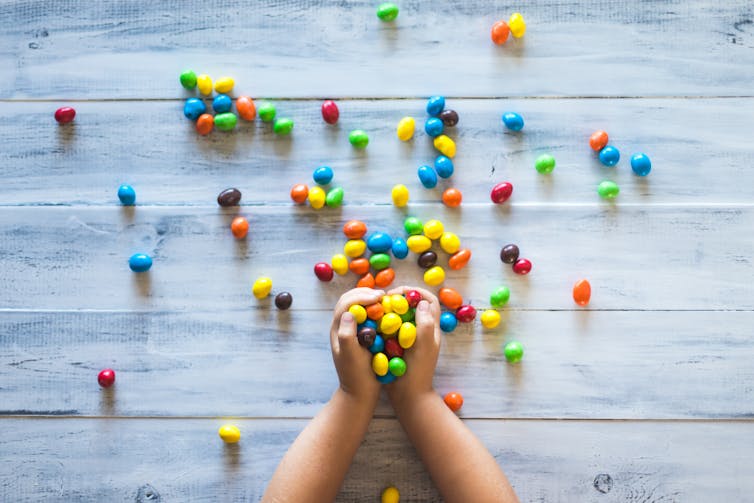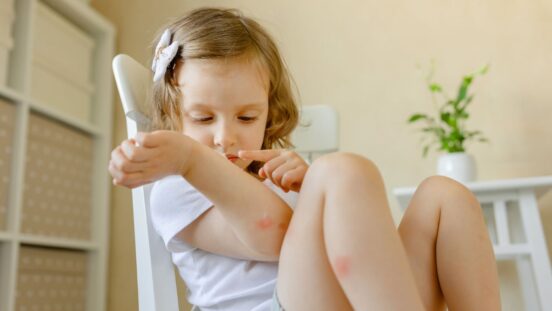Fact or fiction: Are sugar rushes real… and what about a sugar crash?
The scientific truth!
Lauren Ball, Griffith University
When I’m happy after eating something sweet mummy and daddy say I am having a “sugar rush”. But I think I’m just happy! Is a sugar rush a real thing? – Rosie, aged 7.
Hi Rosie! We’re so excited you asked this question.
A sugar rush is an old saying for when someone feels happy and energetic after eating sugary foods, like lollies. They’re talked about all the time at school.
And this seems like a good explanation for them.
But you’re right: a “sugar rush” isn’t a real thing. It’s what we call a myth. So what’s going on?
What actually is sugar?
Sugar is something your body uses to make energy.
Sugar is a type of carbohydrate. Carbohydrates are found in lots of foods, like fruits, vegetables, and cereals.
Carbohydrates found in processed foods, like lollies and soft drinks were thought to give you extra energy.

Patrick Fore/Unsplash
Why did people think sugar rushes were real?
Scientists used to think eating sugary foods and having a “sugar rush” meant sugar would give you lots of fuel to break down into energy.
They thought this because people would be happier, and have lots of energy after eating sweet treats.
This is because sugar is taken up into your blood quickly after eating. Your body then transports the sugar in your bloodstream to your muscles and organs, like your heart and brain.
The muscles and organs use the sugar to make energy. All that extra energy might cause someone to do lots of activity like running and jumping.
So why is it a myth?
Your body doesn’t use all the sugar you eat at once, it’s very good at storing sugar for use later.
In fact, your body likes to keep the amount of sugar in your blood steady – not too much and not too little.
This means your muscles and organs can use the right amounts of sugar to make energy when they need it.
How did scientists find this out?
To test if a “sugar rush” is real, scientists have done some experiments.
First the scientists gave some children a snack, but they didn’t tell their parents what they gave them.
Then the parents had to guess if their child was given something sugary, or non-sugary.
After watching their child play, most parents couldn’t tell which snack their child had. Most parents even thought their child had a sugary snack, when they hadn’t!

Shutterstock
These experiments helped scientists discover that a “sugar rush” is a myth.
Instead, they think people just get happy and energetic from enjoying a treat, sugary or not.
So if you are at a party and feeling energetic after eating some cake, lollies and soft drink, it might be because you’re having a good time with your friends and having fun!
But a ‘sugar crash’ is a real thing
Some scientists have looked at what happens to your body after eating lots of sugar. They discovered that eating sugary foods can give you a “sugar crash”!
After feeding some people lots of sugar, the people said they felt really tired one hour after eating their sweet treats.
So rather than having a “sugar rush”, the science says people probably feel worse after eating sugar.

Sugar is something your body uses to make energy.
Hello, curious kids! Have you got a question you’d like an expert to answer? Ask an adult to send your question to curiouskids@theconversation.edu.au![]()
Lauren Ball, Associate Professor/ Principal Research Fellow, Griffith University
This article is republished from The Conversation under a Creative Commons license. Read the original article.




